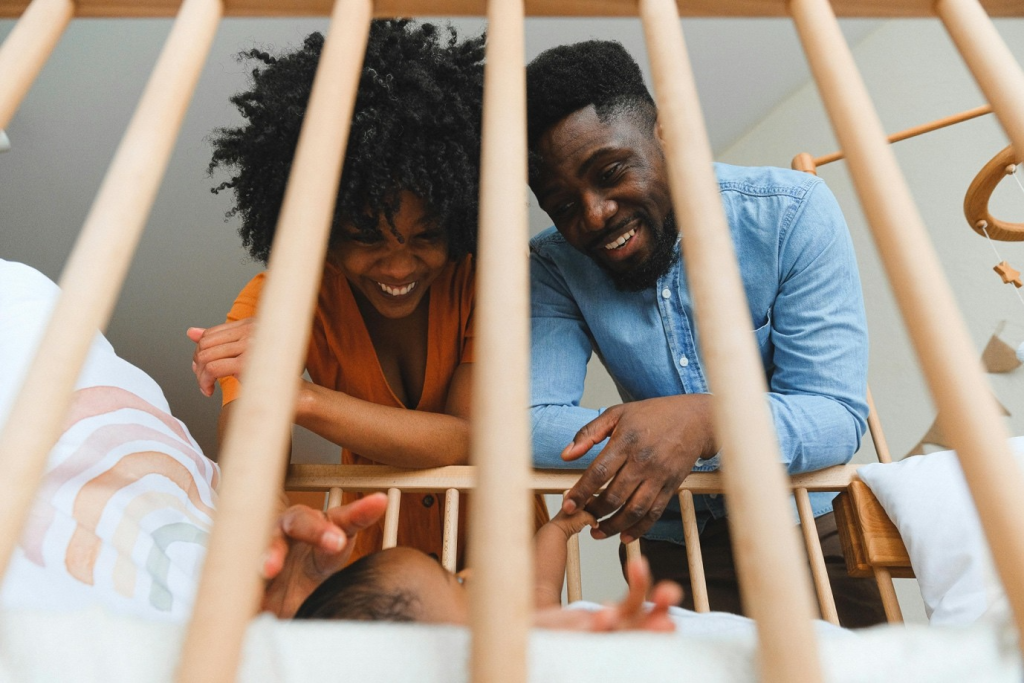If there’s one topic guaranteed to spark debate at every baby shower, moms-and-tots group, or family WhatsApp chat, it’s sleep. Should babies co-sleep in the family bed? Should they start in a crib from day one? And what about sleep training — is it kind, or is it cruel?
Ask ten parents, and you’ll likely get ten different answers. But what do the experts say, and how do these choices affect a baby’s development long-term?
“Sleep is such an emotional subject because it affects the whole family,” says Sr Londe, independent midwife and trusted adviser to Vital Baby South Africa. “There’s no one-size-fits-all solution. What’s important is balancing safety, bonding, and rest — for both baby and parents.”
Option 1: Co-sleeping
Co-sleeping — sharing a bed with your baby — is popular worldwide, especially in cultures that value close family bonds. Many parents say it makes night feeds easier and helps babies feel secure.
Pros: Promotes bonding, easier breastfeeding, may help babies settle faster.
Cons: Safety concerns (risk of suffocation or overheating), disrupted sleep for parents, harder to transition baby to their own bed later.
Sr Londe explains: “If parents choose to co-sleep, it’s vital to follow safety guidelines — like keeping pillows and blankets away from the baby and ensuring no one in the bed has consumed alcohol or medication that causes drowsiness.”
Option 2: Crib or cot sleeping
Many sleep experts recommend placing babies in their own crib or cot in the parents’ room for the first six months. This offers closeness without the risks of bed-sharing.
Pros: Lower risk of suffocation, easier for parents to move freely, sets early sleep boundaries.
Cons: Night feeds may feel more disruptive, some babies resist being apart from mom.
“Room-sharing in a crib is a safe and balanced choice,” says Sr Londe. “It allows for quick response at night while giving baby a dedicated, safe sleep space.”
Option 3: Sleep training
Sleep training methods range from gentle routines (like bedtime rituals and gradual settling) to structured approaches (like controlled crying). The goal is to help babies learn to fall asleep on their own.
Pros: Can improve sleep quality for the whole family, helps babies develop self-soothing skills.
Cons: Controversial, as some parents worry about stress or attachment issues.
Sr Londe notes: “When done gently and consistently, sleep training can be effective and doesn’t damage the parent-child bond. It’s about finding the right approach for your baby’s temperament and your family’s values.”
Here’s the secret: there is no single ‘best’ method. What works for one family may be unthinkable for another.
The golden rules?
- Always prioritise safety (flat, firm sleep surfaces; no loose bedding; sleep on back).
- Be consistent with whichever method you choose.
- Give yourself grace — no family ever sleeps perfectly all the time.
“Parents often feel pressured by what they read online or hear from relatives,” says Sr Londe. “But the truth is, the best sleep method is the one that keeps baby safe and allows your family to function with as much rest as possible.”
Research shows that babies can thrive whether they co-sleep, crib-sleep, or sleep-train — as long as their emotional and physical needs are met. What matters most is a loving, responsive environment.
“Don’t get stuck in the comparison game,” Sr Londe adds. “Your baby’s sleep journey will be unique — and that’s okay.”







